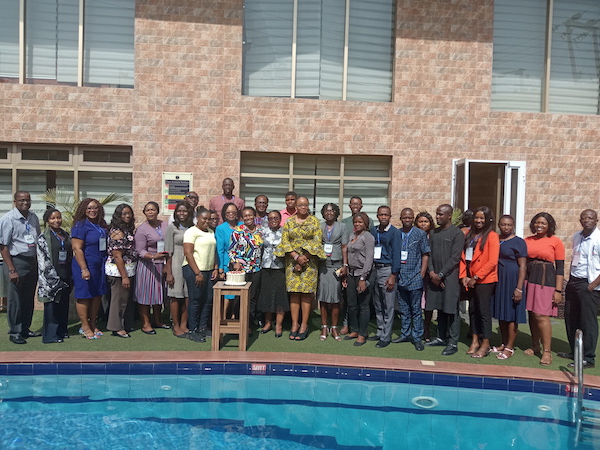Did you know Nigeria has several Viral Hemorrhagic Fever (VHF) Treatment Centers across the country where health workers manage patients with Lassa fever, yellow fever, monkey pox, and other dangerous infectious diseases?
For these VHF Treatment Centers to thrive and provide quality care, health workers must be able to carry out their duties effectively and safely. And that means all frontline health workers battling these deadly viruses need to be trained in the area of infection prevention and control (IPC).
But the challenge in Nigeria is that IPC training is not consistent, unified, or coordinated. We do not have a standardized national IPC program to protect our health workers.
So that’s why the Nigeria Centre for Disease Control (NCDC) hosted a workshop to bring together the major stakeholders – including DRASA, our colleagues from Infection Control Africa Network (ICAN), Medecins Sans Frontieres (MSF/Doctors Without Borders), Irrua Specialist Teaching Hospital, University College Hospital Ibadan, and others – to try to solve this problem.
The goal was for us to review the national IPC guidelines for VHF Treatment Centers and all available IPC training and resource materials, to harmonize the content and to produce a unified approach to IPC training for personnel working at VHF Treatment Centers in the country.

We spent 2 days working hard to identify the right cadres and skills of health workers – doctors, nurses, lab scientists, pharmacists, porters, hygienists, waste managers, etc. – required to work in a VHF Treatment Center and we also developed a draft IPC curriculum aimed at building the capacity of these health workers to detect, prevent and contain deadly infections like Lassa fever and monkeypox.

From safely moving patients to cleaning and disinfecting the treatment centers to conducting safe burials, we covered a wide variety of important topics that will help improve the quality of care provided in the VHF Treatment Centers while also keeping health workers safe.
We know this is just the first step in the national effort led by NCDC to standardize and harmonize the way we support the health heroes who are battling deadly viruses so the rest of us can stay safe.
We look forward to pushing this forward.



